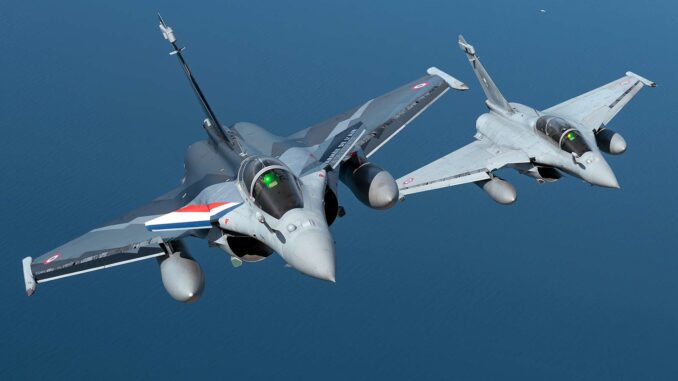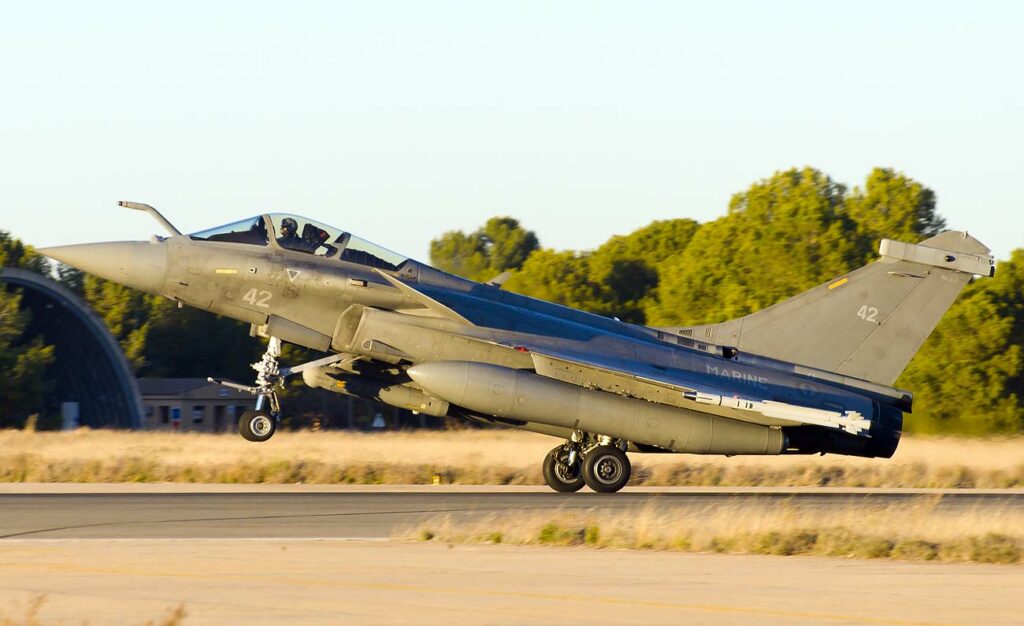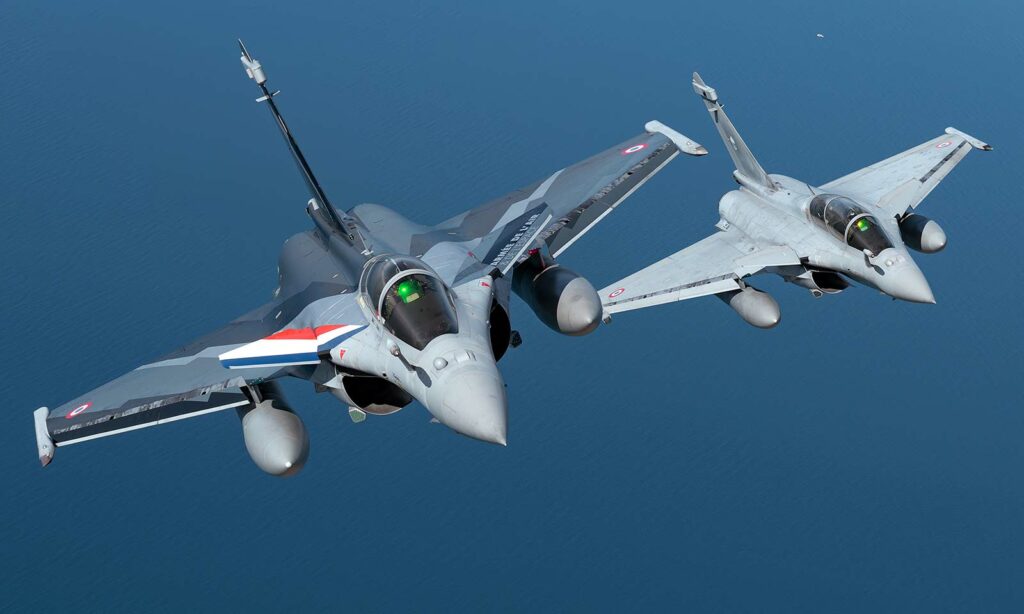
France orders 42 Rafales from Dassault Aviation for over $5.5 billion, strengthening its air defense capability.
France’s major Rafale acquisition: a strategic reinforcement
France recently announced the purchase of 42 Rafale fighter jets from Dassault Aviation, in a contract worth over 5 billion euros (around $5.5 billion). The contract comes amid concerns expressed by French lawmakers about the Franco-German project to develop a successor to the Rafale, the Future Combat Air System (FCAS), which is not expected before 2045 or 2050. The French Defense Procurement Agency has notified Dassault Aviation and equipment suppliers Thales, Safran and MBDA for this fifth phase of Rafale production.

The Rafale, in service with the French Navy since 2004 and the French Air Force since 2006, has been deployed in a variety of military operations, including Afghanistan, Libya, Mali, Iraq and Syria. This contract brings the total number of Rafales ordered by France to 234, including a special order in 2021 for 12 aircraft to replace those transferred to Greece. Rafale export orders currently stand at 261 new aircraft, with customers including Egypt, India, the United Arab Emirates and Indonesia.
The new aircraft will be single-seat versions, equipped to the F4 production standard, focusing on connectivity and including MBDA’s Mica medium-range air-to-air missile, as well as an upgrade to the Spectra self-defense system developed by Thales. Safran supplies the aircraft’s M88 turbofan afterburner engine. Upgrades to the F5 standard are planned for the 2030s.
Strategic and industrial implications of France’s Rafale purchase
France’s purchase of 42 Rafales has important strategic and industrial implications. Strategically, this acquisition strengthens France’s ability to maintain an effective air component for its nuclear deterrent, especially while awaiting the commissioning of the FCAS. The Rafale, considered to be a generation 4.5 fighter, equipped with stealth technologies and capable of supersonic speed without afterburner, plays a key role in French air defense.
Industrially, this order supports the French aeronautics industry, guaranteeing the activity of the Rafale production line for the next 10 years. Dassault Aviation has received orders for 60 Rafales in 2023, including 42 for France and 18 for Indonesia, compared with 92 export orders in 2022. Deliveries in 2023 amounted to 13 aircraft, below the target of 15. The company’s order book for the Rafale increased to 211 at the end of December, including 141 for export, compared with 164 at the end of 2022.
In addition, this contract is the first major investment under the French military budget law for 2024-2030, and will support over 7,000 jobs through more than 400 companies. This reinforcement of France’s air defense capability through the acquisition of the Rafale also has a significant impact on the balance of military forces in Europe and beyond. By consolidating its Rafale arsenal, France not only maintains its position as an independent military power, but also plays a key role in regional security.
This purchase also illustrates the importance of international collaboration in the defense industry. Although the Rafale is a product of French industry, its components and technologies come from various European suppliers, underlining the interdependence of EU countries in the defense field. In addition, the Rafale contract demonstrates France’s preference for an independent solution, rather than dependence on the FCAS, an uncertain joint project with Germany.

France’s Rafale order strengthens its sovereignty and security, while bolstering its aerospace industry. It also reflects the challenges and changing dynamics of defense in Europe.
War Wings Daily is an independant magazine.